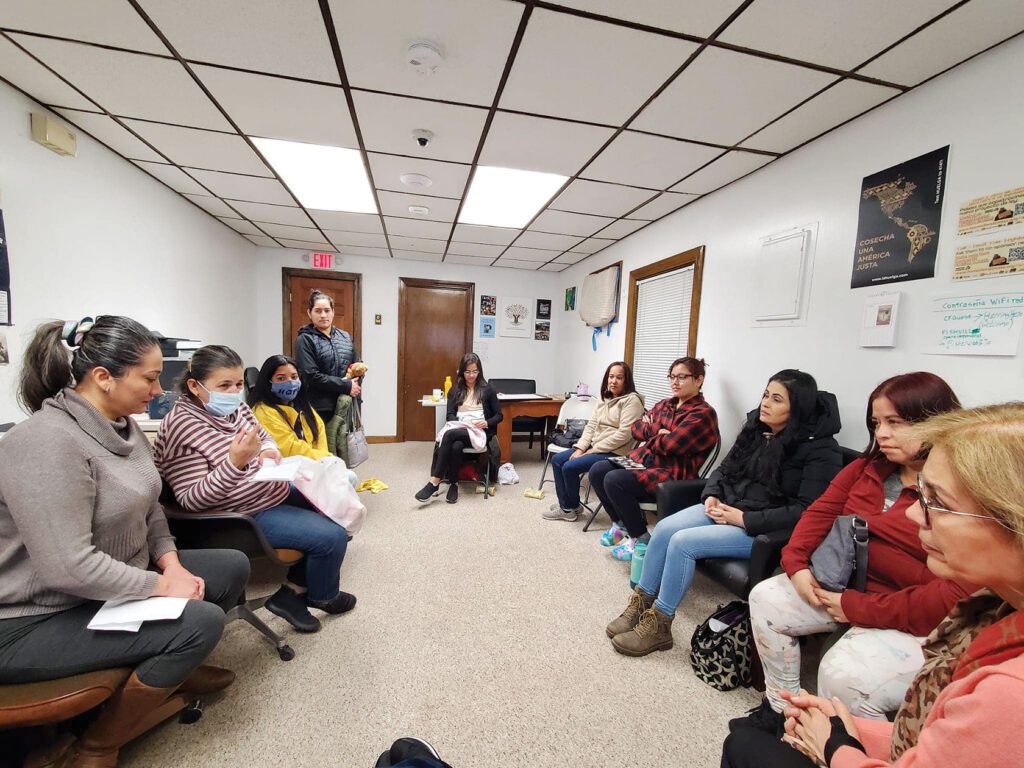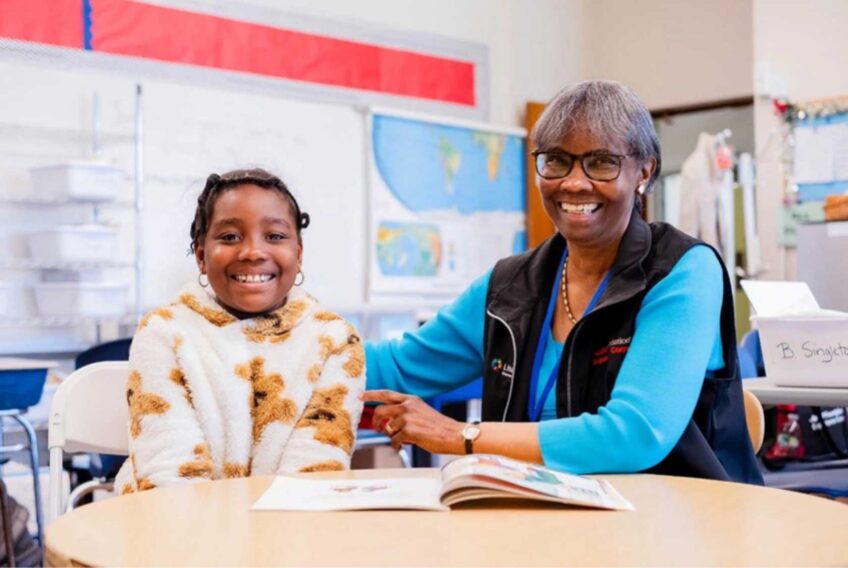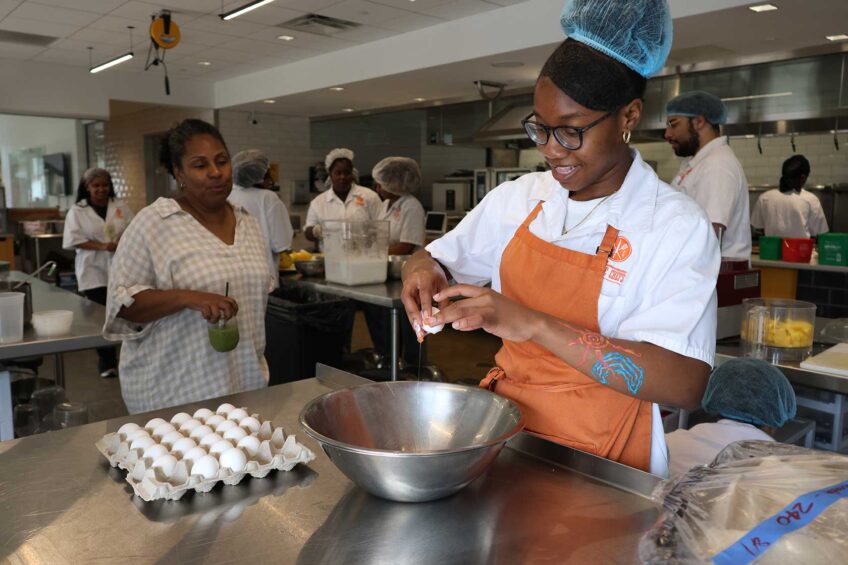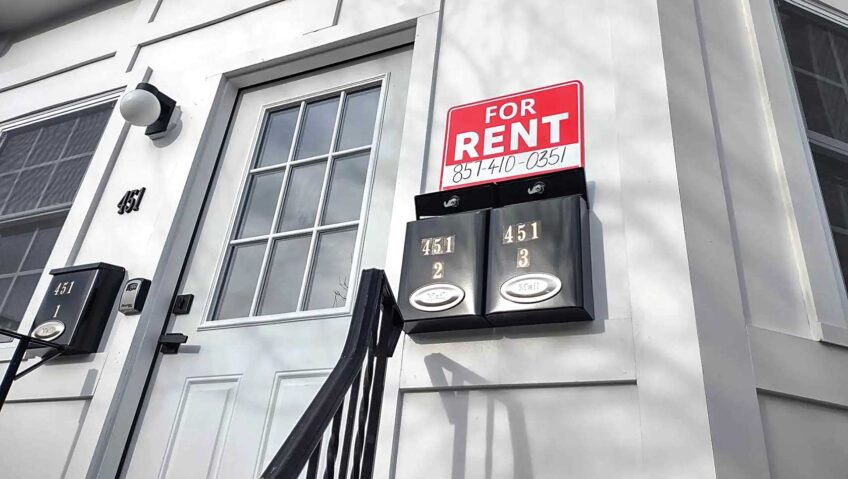
The city has awarded more than $700,000 in grants to 15 nonprofits in Boston to provide additional legal services to immigrants. The grants from the Office for Immigrant Advancement are to be used for such services as expanding support for immigrants from certain countries, helping them obtain driver’s licenses and providing legal consultations.
“The immigration system is complicated, and it can be difficult and expensive to get access to qualified legal help,” Mayor Michelle Wu said in a recent news release. “I’m grateful to these organizations for stepping up to provide these critical services to our residents.”
Immigrants often face difficulties finding adequate legal services, being able to afford them and avoiding potential scammers. In January, the city office had released an application for the grants, which range from $5,000 to $90,000.
Hannah Avila, who coordinates the office’s legal access project, said the review committee tried to distribute the grants to different communities in Boston to make the process equitable.
“There are many immigrants that are in Boston that are in need of immigration legal services,” she said. “But there are not enough lawyers that are doing this work. There are nonprofits that do this work, but they don’t have capacity for the number of people that need this help…. The mayor wants to do this to ensure that all of Boston’s immigrant residents are able to equitably access these services.”
She added that the grants were included in the fiscal year 2023 budget in response to the ongoing need for this kind of service in Boston.
“This is something our office is really committed to. The immigration system — it’s complicated. Things process really slow. It’s hard to navigate on your own. So we really want to ensure that Boston is a city for everyone and that folks are able to get their immigration needs met,” she said.
The Immigrant Family Services Institute in Mattapan, which provides legal services primarily to Haitian immigrants, received one of the grants. Geralde Gabeau, the organization’s founder and executive director, said the money will be used to help meet the increasing demand for legal services for new arrivals and help them with necessary paperwork.
“Currently, we’re taking about 100 new people every day. So, we definitely need to amend our legal capacity so that we can serve them all,” she said. “It takes a lot of time to do all of the paperwork that they need so that they can have a legal status. So it’s not easy. It’s a lot of work. We need to build our capacity to have more lawyers and more legal staff on our team.”
Gabeau said the influx of Haitian immigrants is coming primarily from the southern border, a new program for migrants from Cuba, Haiti, Nicaragua and Venezuela and states like Florida that have been extremely slow to process new arrivals.
Haitian immigrants “are in Florida for often weeks or even months and they cannot access any services and now they are going to impose some sanctions on those who are helping them. So even those who are eligible for services, they are afraid because of what’s going on in Florida,” she said.
Although her organization did not receive as much from the city as it requested, Gabeau said.
“That is only a little piece of the puzzle,” she said. “So, the point is not that it’s going to allow you to do everything that you need, but it’s going to support the work that you are doing.”
Neenah Estrella-Luna, cofounder and cofacilitator of Mutual Aid Eastie in East Boston, said the organization will use its grant to help immigrants obtain driver’s licenses.
“What Mutual Aid Eastie is doing is the first part of the process — just making sure people know what the opportunity is, what’s available to them, walk them through the process of gathering the documents and getting those documents ready,” she said.
The organization received $30,000 out of their original request for $90,000. Its original plan was to partner with a local driving school and get a bulk discounted rate for road test training and rental car services for their members.
“For the people who haven’t actually had the opportunity to learn how to drive this would have at least provided them with that additional guidance, as well as for folks who don’t actually have access to a vehicle. Oftentimes the majority of (driving) schools for a fee will let you use their vehicle to take the road test. So we wanted to be able to support people throughout the entire process,” Estrella-Luna said.
Driving without a driver’s license, she said, has been one of the main reasons some immigrants face deportation. She called licenses a “small measure” of protection from over-policing.






